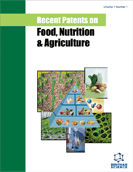Abstract
The expected prevalence of Alzheimer's disease (AD), the most common neurodegenerative disease triggered by aging, has become a critical problem. Although the cause is clear, accumulation of amyloid-β (Aβ), we still cannot totally cure this disease. Hence, it is essential to prevent the symptoms that have appeared. A number of studies have reported that soybean supplementation prevents cognitive dysfunction. Besides being a rich source of vegetable proteins, soybean contains other functional ingredients such as phytoestrogens, oligosaccharides, and dietary fibers. Especially, recent studies suggested greater functions with green soybean. Comprehensive analysis of gene expression in the brains of mice that ingested soybean using high-density oligonucleotide microarray suggests that an increase of an endogenous Aβ-chaperone, lipocalin-type prostaglandin D2 synthase (Ptgds), leads to suppressed Aβ accumulation, resulting in the prevention of cognitive dysfunction. Here we will review relevant patents and estimated effective components and underlying mechanisms of soybeans, suggested by comparing effects of green and yellow soybean breeds to mice.
Keywords: Aging, amyloid-β accumulation, amyloid chaperone, cognitive function, green soybean, prostaglandin D2 synthase, SAMP10, soy isoflavone.
Graphical Abstract
 52
52 3
3 1
1 2
2


















